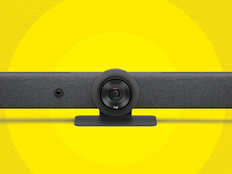The Silver Lining to Distance Learning
But it’s working, sort of. I’m not as tech savvy as I once was. Dare I say that many of my students are quicker at picking all this up than I am? I’m still trying to figure out how they text so fast with two thumbs. I use only one, and my texts are rife with typos.
Yet I am, surprisingly, starting to enjoy teaching online. Though I’ve been hearing impaired most of my life, I function quite well with hearing aids. Still, my hearing is far from what would be considered normal.
It can sometimes be a challenge in the classroom when students speak low or sit too far away from me, but I’ve learned to deal with it. I often run around the classroom, for instance, to get closer to a student during a discussion or workshop session.
For me, teaching online with videoconferencing has been an eye-opener (or, rather, an ear-opener).I use normal headphones, placed over my hearing aids, while in Zoom sessions. Since the students are sitting in front of their computers, close to the microphone, I can actually hear better than in a traditional classroom setting. A light went on when I realized this: Being able to hear better in an online environment could be a real game changer for me.
MORE ON EDTECH: Here are 5 videoconferencing tools for student group projects in 2020.
I’ve had some fantastic help in feeling my way through the new normal of distance learning. Vanguard’s dean of teaching and learning and the Institute for Faculty Development have provided several online training sessions for faculty. Professors have learned the ins and outs of Zoom, more advanced features of Canvas (which many were already using) and general pointers for online teaching and learning.
The amount of information and training has been great, though initially it was a lot for me to take in. It reminds me of something a friend said when describing being overwhelmed with too much information: It’s like trying to catch a tidal wave with a bucket.
I have not yet taken advantage of all the things remote learning technology can do, but my goal for the students (and myself) is to make things as simple as possible and to ensure that I am still teaching the most important objectives for my classes. After that, I am willing to learn more, delve deeper and explore the details of this new pedagogy.
The world is changing. Our first focus should be on the health and safety of everyone. But educating people doesn’t stop, and I am doing my best
to march forward into the future of academia, whether it takes place in a physical classroom or online.











